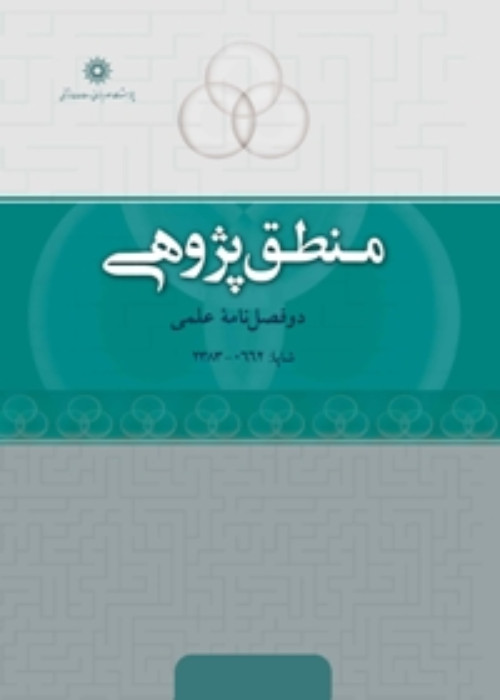The Roots of the Absolute Non-Existent Paradox in Greek Philosophy
Author(s):
Abstract:
For Different thinkers، throughout history، ‘The unknowable non-existent’ has had different meanings. However، despite these differences، the ordinary absolute non-existent in Muslim philosophy (ma‘dūm muṭlaq; non-existent in both the external world and in the mind)، can be expressed in this way: absolute non-existent is never existed in external world or in mind (rather it is impossible to be conceived in the mind)، neither detailedly nor un-detailedly، neither in perception nor in imagination and intellect. ‘The absolute non-existent’ leads us to a paradox which is usually called the paradox of informing from absolute non-existent; suppose that (P) is ‘The absolute nonexistent is unknowable’، since the very P is a kind of knowledge or information about the absolute nonexistent، so we are encountered to a paradox. In this paper I explore the roots of the ‘absolute nonexistent’ and the paradox in Greek philosophy; actually in Parmenides and Plato.
Keywords:
Language:
Persian
Published:
Logical Studies, Volume:5 Issue: 1, 2014
Pages:
29 to 51
magiran.com/p1349730
دانلود و مطالعه متن این مقاله با یکی از روشهای زیر امکان پذیر است:
اشتراک شخصی
با عضویت و پرداخت آنلاین حق اشتراک یکساله به مبلغ 1,390,000ريال میتوانید 70 عنوان مطلب دانلود کنید!
اشتراک سازمانی
به کتابخانه دانشگاه یا محل کار خود پیشنهاد کنید تا اشتراک سازمانی این پایگاه را برای دسترسی نامحدود همه کاربران به متن مطالب تهیه نمایند!
توجه!
- حق عضویت دریافتی صرف حمایت از نشریات عضو و نگهداری، تکمیل و توسعه مگیران میشود.
- پرداخت حق اشتراک و دانلود مقالات اجازه بازنشر آن در سایر رسانههای چاپی و دیجیتال را به کاربر نمیدهد.
In order to view content subscription is required
Personal subscription
Subscribe magiran.com for 70 € euros via PayPal and download 70 articles during a year.
Organization subscription
Please contact us to subscribe your university or library for unlimited access!



